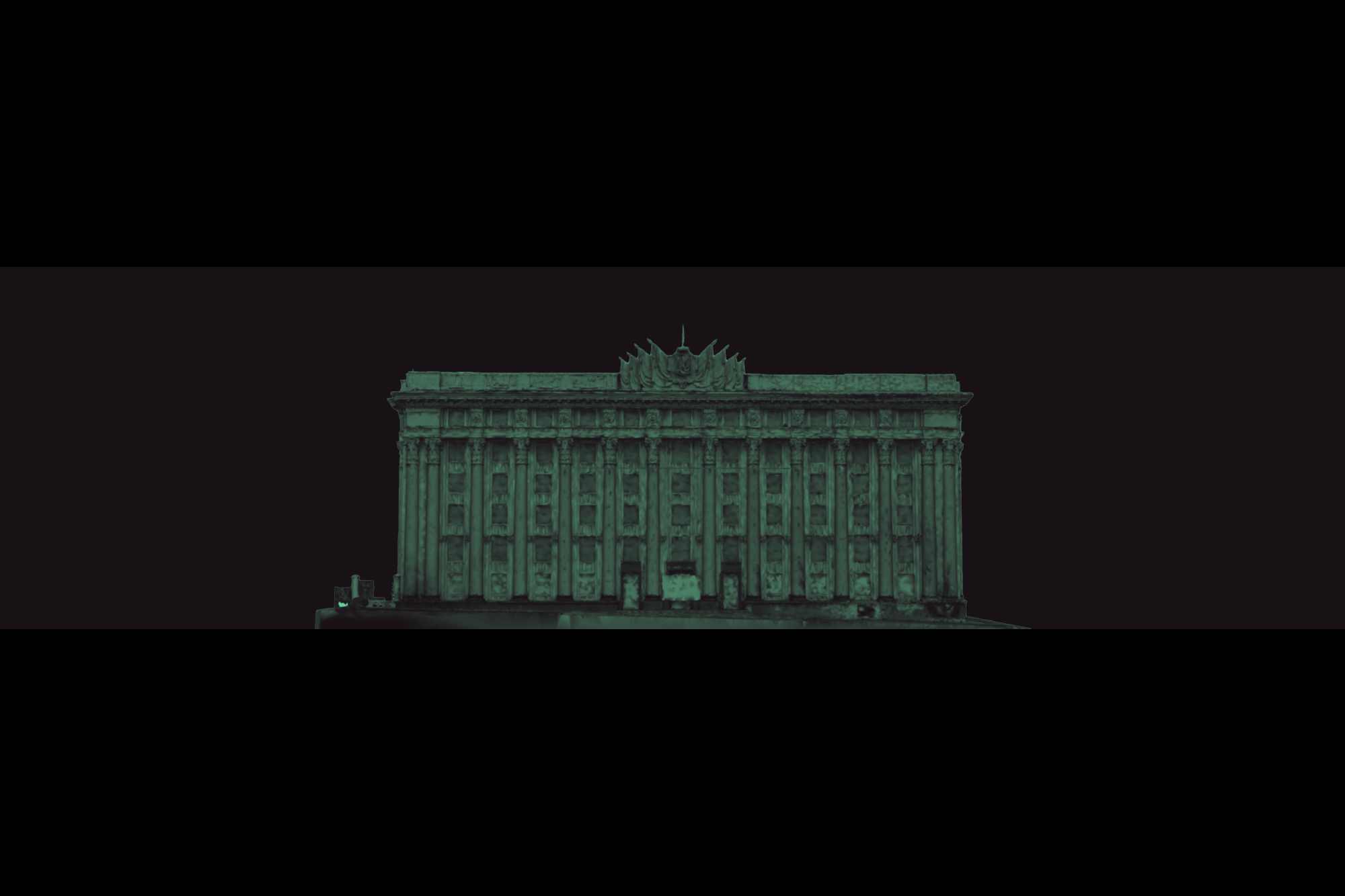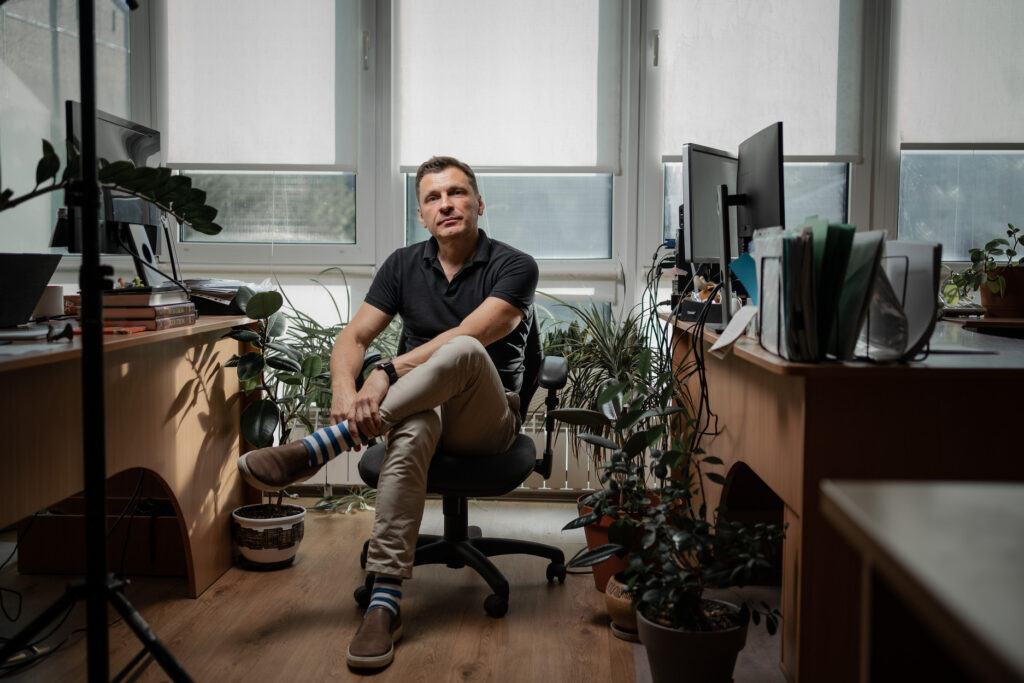The War That Changes Us is a series of columns marking the third anniversary of the full-scale invasion. How does the war shape us? What scars, imprints does it leave behind? How closely have we grown to the war, and how deeply has the war taken root in us? What has changed over the past three years? Over 11? Who were we then, and who will we never be again?
We tried to seek out answers and asked our colleagues to share their reflections: historians, journalists and activists, service members and human rights defenders, writers, cultural managers, scholars and public intellectuals.
§§§
Two cafes and one restaurant have closed down in my neighborhood. As did a cheese shop. It was named somewhat provocatively “Products from Europe.” It has stood door-shuttered since February 24. A few restaurants on the corner, closer to the center, are still in one piece, open. One translated its name into Ukrainian [it was previously written in Russian — Ed.], and the other started serving business lunches. The street, so small, about a dozen buildings on each side, in the quiet part of midtown, has changed irrevocably. It’s not even about the products from Europe. It’s about the air. The air became tenser, ringing with silence and apprehension. Fewer people live here now, the students from the academy across the street have disappeared. For a time, about a year ago, soldiers lived on my street. They wore civilian clothing, as if it wasn’t obvious that the bearded, sunburned men wearing tactical clothing and waist packs were soldiers. Later, they left too.
A few months ago, recruitment officers would appear on the corner from time to time, checking documents. Aside from that, the street remained cosy, framed by tall trees, its old buildings full of history. The thing is, everything happening right now, on the streets and in the squares, is also history — a history that defines the future, a history that turns on its head our perspective on the past. The past is where we left behind a totally different life and a totally different reality. Nowadays, we try to catch it with our gaze, unearth the evidence of its existence in our memory — and don’t quite know how to handle any of this.
It’s an odd habit — constantly, somewhat unconsciously, searching your surroundings, trying to catch a glimpse of your past, pre-war life. Recognising which old coffee shops had shut down with the start of the full-scale war (their names are usually in Russian, which confuses you at first but then evokes a sad irony — there’s that protection of the “Russian speakers” on the part of the occupiers), looking through the windows crisscrossed with scotch tape since the spring of 2022, noticing the storefronts boarded up with wooden panels.
The Kharkiv of peacetime emerges through the heavy reality of war as a dark, thin outline.
Much like an old, familiar smile on the face of a wounded person, or the way they used to tilt their head when perplexed, or lift their eyebrows in surprise — those old expressions, the carelessness and ease they used to have. It’s obvious that the city has changed, and those changes are much deeper, more serious than the visual markers we can see on the outside: the shrapnel holes in the asphalt near the bookstore or the destroyed administrative buildings in the city center.
Frankly, by now, all of us feel battered. Our minds resemble the shrapnel-perforated asphalt of the Kharkiv streets, even if that sounds a bit pretentious. Despite our overt calmness and irony, our defiant resilience and tirelessness, the exhaustion emerges as a shadow, indenting itself in the wrinkles on our faces, reflecting itself in our gaze. Entrepreneurs and teachers, students and pensioners, government workers and military servicemen — everyone carries the mark of these three years of seismic change, balancing over an abyss and constantly looking down into the hell that turned out to be so near — so close, in fact, that we constantly hear the work of its deadly machines.
What can be done about this trauma, and how do we live with it?
I suppose it will continue to differentiate us from the crowds and groups of people at respectable international gatherings and amongst the crowds of many shades and opinions.
The experience of our trauma, our pain, our desire to withstand and persevere will forever be an integral characteristic of the people of this country. It’s not always comfortable for us and for others, it’s not the most convenient in communication and not very appropriate when compared to other people’s experiences — the much calmer, normal ones. However, our experience, those changes in us, those fractures and inner eclipses, cannot be ignored — this experience has been too costly, and we’re paying too high a price for the possibility of remaining who we are. Everyone will have to accept us for who we are — or, rather, who we became during this time.
The reality of war sharpens our senses.
One way or another, you cling to life — to normalcy, as such, to the ordinary things that used to seem expected and immovable.
You must find time to do things, figure things out, decide upon something, propose to someone, return somewhere, finish a book, restore, talk things through. Time has become compressed, it has lost its sense of expanse and orderliness, and in it, you feel like you’re crossing a river at night, when the current slows you down, turns you around, surrounds and envelopes you. Time becomes dense, and you claw through it, hoping that the other bank is just within reach — right there, in the thick, black, all-consuming darkness.
You simply ought not to lose your footing — to stay upright, keep your pace, reach your destination, power through and suffer through. The odd feelings of heaviness and pressure never pass — they stay with you always, constantly keeping you company, draining you, but at the same time motivating you, providing you with meaning and understanding of your place in this deluge.
This city will never be as it once was. Some things are gone from it forever. Some people left and will never come back. Some won’t come back because they were killed. In the meantime, though, people keep walking these streets — they are happy, stressed, pensive, sad. Different. They stay here, they live, they have their hopes, and they have their faith. Each and every one of them carries a lot of pain. But also a lot of love. I reckon there is much more love — a lot more. Something that was here before. And something that hasn’t changed.
Serhiy Zhadan, writer, musician, volunteer.
Illustration by Vadym Blonskyy
Translated from the Ukrainian by Liubov Kukharenko
If you’d like to share your thoughts, ideas, or experiences by contributing a column, please email us at [email protected]. The views expressed in the piece may not necessarily reflect the position of The Ukrainians Media. Reprinting the text or any part of it is permitted only with written permission from the editorial team.




